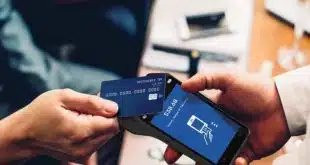In a marked escalation of a conflict that began when MasterCard Inc. and Visa Inc. raised small-ticket debit card interchange rates, USA Technologies Inc. has stopped accepting MasterCard debit cards in its wireless network of 100,000-plus vending machines and other unattended card-accepting locations.
The Malvern, Pa.-based operator turned off MasterCard debit cards Nov. 14 and it’s unclear when it will resume acceptance. “We continue to have open communications with them,” Mike Lawlor, USA Technologies’ senior vice president of sales and business development, tells Digital Transactions News. “Our position is that we would love to turn them back on.” Lawlor adds that regarding his company’s talks with MasterCard, “they really haven’t indicated any way or the other. They’ve held their cards close to the vest.”
A MasterCard spokesperson did not respond to Digital Transactions News requests for comment by late Monday afternoon.
Lawlor says MasterCard debit cards accounted for about 15% of all credit and debit card transactions on USA Technologies’ network of 129,000 unattended locations, most of which are vending machines. So far, he says, the share of card-based transactions hasn’t changed since acceptance of MasterCard debit cards stopped, which means customers apparently are substituting those cards with others. “We’ve really seen very little effect on overall cashless sales,” he says. The company continues to accept MasterCard credit cards.
Responding to new Durbin Amendment regulations from the Federal Reserve Board intended to lower merchants’ cost of accepting debit cards, both Visa and MasterCard instituted new debit card interchange schedules Oct. 1 that actually raises merchants’ costs on small transactions. The networks did this by changing the Fed’s cap for regulated issuers (those with $10 billion or more in assets) of 21 cents plus 0.05% of the sale with another penny under consideration for fraud control into a straight rate with identical components. Assuming the 1-cent fraud adjustment gets the Fed’s okay, interchange is now higher on transactions below about $12 with regulated than it is with unregulated cards. Unregulated debit cards have small-ticket rates of 1.55% plus 4 cents for MasterCard and 1.60% and 5 cents for Visa.
Big banks’ regulated cards generate about two-thirds of debit transactions, so the new schedules caused small-ticket merchants to take evasive action or increase prices. Coinstar Inc.’s kiosk-based Redbox DVD-rental service, for example, raised its base price from $1 to $1.20.
With an average ticket of $1.67 and most of its card sales of the debit variety, USA Technologies could have seen its interchange expense rise by 235%, from 6.6 cents to 22.1 cents, had 22 cents plus 0.05% been applied. The company negotiated a deal with Visa that keeps acceptance costs at pre-Durbin levels for a year and told investors it would not continue to accept other cards that cost it more than Visa. But it hasn’t been able to strike a similar deal with MasterCard.
USA Technologies’ approximately 2,300 vending machine-owning customers are informing consumers in several ways that they can’t use MasterCard debit cards, including through signs placed on machines or through e-mail blasts to affected users, such as employees at a location with a USA Technologies network machine, Lawlor says.
A merchant's refusal to accept a major network’s debit cards while still accepting its credit cards is a very rare occurrence in the U.S. The major previous incident was Wal-Mart Stores Inc.’s six-month banishment of MasterCard debit cards in 2004. Wal-Mart was the lead plaintiff in a massive retailer class-action lawsuit that resulted in merchants being freed from long-standing Visa and MasterCard rules that required them to accept those networks’ signature-based debit cards if they accepted their credit cards.
Patricia Hewitt, director of the Debit Advisory Service at Mercator Advisory Group Inc., says that apart from USA Technologies, she’s not aware of any merchants refusing to accept a network’s debit cards in the current small-ticket fracas. But USA Technologies’ experience, she says, shows that merchants and closely aligned processors are re-thinking whether their custom of automatically taking both bank card brands and all cards associated with those brands still makes business sense.
“That’s a big change,” she says. “It indicates that merchants are thinking differently about their payment acceptance. They’re willing to take the risk that they’re going to anger consumers, that’s always a risk.”
Lawlor said USA Technologies made its decision about MasterCard debit cards in full consultation with its customers, who apparently are willing to take the risk Hewitt mentions. “This was not a decision we made ourselves,” he says, adding that many customers, both large and small, said that if MasterCard wouldn’t change its rates for small charges on debit cards, “it doesn’t make business sense to carry them.”
In other news, USA Technologies on Monday announced that it named interim chief executive officer Stephen P. Herbert as its permanent CEO and chairman of its board of directors. The board named Herbert, the company's long-time president and chief operating officer, as interim CEO in October after chief executive George R. Jensen Jr. resigned in the wake of a board investigation over alleged improper postings about the company on an Internet message board.



